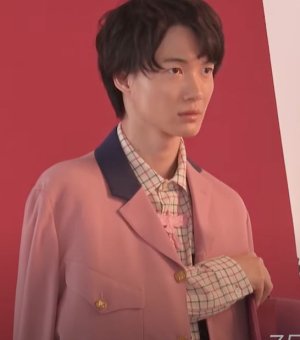Whimsical
The lightness, genuineness and sensitivity with which the Japanese people manage to tell certain stories are incredible, managing to transform even the simplest things into something magical. To have an example, it would be enough to see how Into the Faraway Sky begins, with the two young protagonists who meet by chance - with impressive naturalness - while they pee on the edge of a country road: Kohei is rough and impetuous, but he has goodness and fortitude. Deliver milk every day down to town. Ryosuke, on the other hand, is the newcomer, he comes from Tokyo and his father has just moved to that remote village with the aim of driving out the inhabitants. The Japanese government intends to build a huge airport in its place. It was many years ago. Just an ideal panorama for Isao Yukisada (former director of beautiful films such as A Day on the Planet and Crying Out Love, in the Center of the World), who, as usual, leverages the deepest melancholies of the human soul, filtering his story through the eyes of a group of children and stuffing it all with characters to say the least over the top. To be clear we are around Always - Summer on the Third Street (Takashi Yamazaki, 2006), but with the same nostalgic vein as When the Show Tent Came to my Town (Yoshihiro Fukagawa, 2005) and a pinch of the pop madness of Memories of Matsuko (Tetsuya Nakashima, 2006): the result is a work that for its entire duration makes you feel small and manages to entertain even the most frivolous things, as during the long and insistent sequence in which Kohei and Ryosuke go around putting firecrackers in the cows' shit to treacherously dirty the unsuspecting passers-by. But then they meet Hiharu, a strange little girl who observes the stars every night hoping to one day be able to see the UFO that, according to her words, would have kidnapped her father. The three become inseparable and their friendship grows stronger while the diatribe rages in the village over the construction of the airport, which sees part of the inhabitants against and part in favor: Kohei, Ryosuke and Hiharu live the problem with the lightness of children. and they will try to solve it in their own way, with imagination and ingenuity, during a summer that they will never forget and that will mark them forever. The choral structure of the film allows us to follow several other parallel stories, creating an exciting and daring mosaic made up of flying men, gangs of crazy criminals and unlikely marriages. And between a surreal curtain and the other, at the end Yukisada abandons the usual realism of his stories and lets himself be abandoned to the imagination, just like the children protagonists of the film. Because - as Kohei's father also says - anything can happen when you believe it is possible. A basic poetics that has led someone to bother even the master Miyazaki, perhaps exaggerating in drawing a parallel with Yukisada. But Into the Faraway Sky is a film that makes you feel good, and that's enough. Unmissable. gang of crazy criminals and unlikely marriages. And between a surreal curtain and the other, at the end Yukisada abandons the usual realism of his stories and lets himself be abandoned to the imagination, just like the children protagonists of the film. Because - as Kohei's father also says - anything can happen when you believe it is possible. A basic poetics that has led someone to bother even the master Miyazaki, perhaps exaggerating in drawing a parallel with Yukisada. But Into the Faraway Sky is a film that makes you feel good, and that's enough. Unmissable. gang of crazy criminals and unlikely marriages. And between a surreal curtain and another, at the end Yukisada abandons the usual realism of his stories and lets himself be abandoned to the imagination, just like the children protagonists of the film. Because - as Kohei's father also says - anything can happen when you believe it is possible. A basic poetics that has led someone to bother even the master Miyazaki, perhaps exaggerating in drawing a parallel with Yukisada. But Into the Faraway Sky is a film that makes you feel good, and that's enough. Unmissable. Because - as Kohei's father also says - anything can happen when you believe it is possible. A basic poetics that has led someone to bother even the master Miyazaki, perhaps exaggerating in drawing a parallel with Yukisada. But Into the Faraway Sky is a film that makes you feel good, and that's enough. Unmissable. Because - as Kohei's father also says - anything can happen when you believe it is possible. A basic poetics that has led someone to bother even the master Miyazaki, perhaps exaggerating in drawing a parallel with Yukisada. But Into the Faraway Sky is a film that makes you feel good, and that's enough. Unmissable.
Was this review helpful to you?






